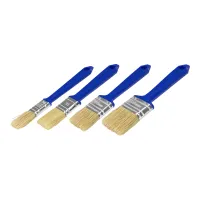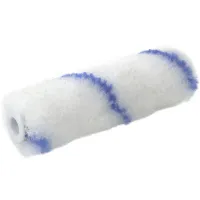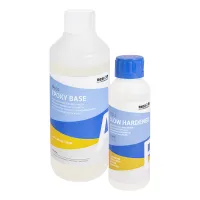Twill fabric 160 gr/m2



- For epoxy and polyester
- Pliable glass fabric
- Suitable for rounder shapes
Twill fabric is a twill-woven glass fabric that is particularly suitable for laminating round shapes. Twill fabric is comparable to square glass fabric (200 gr/m2), but is woven in a different way (2x2 twill). As with square glass fabric, twill fabric 160 g/m2 absorbs little resin, so you create a strong and lightweight construction. This fabric has a weight of 160 gr/m2 and is 100 cm wide.
Twill fabric is very suitable to use in combination with polyester resin, vinylester resin and epoxy resin.
Features of Twill fabric 160 gr/m2
- Pliable fabric, making it very suitable for laminating round shapes.
- Suitable for processing with polyester, vinylester or epoxy.
- Available in 160 gr/m2 and 280 gr/m2.
Applications
Twill fabric 160 g/m2 is a lightweight fabric used for structural constructions and cladding. The fine yarns are virtually invisible in epoxy resin, allowing transparent upholstering to be made. Unlike square glass fabric, twill fabric is very pliable. This makes this type of fabric very suitable for reinforcing fabric for (round) shapes.
For instructions on use, check out the technical documentation. We also supply twill fabric in 280 gr/m2.
Specifications
| Application method | Layer thickness | Resin consumption |
| Hand lay-up | 0.27 mm | approx. 210 gr/m2 |
| Wet Bagging | 0.16 mm | approx. 102 gr/m2 |
| Vacuum injection | 0.16 mm | approx. 94 gr/m2 |
Weight: 160 gr/m2
Weave type: twill (2/2)
Width: 100 cm
Compatible with: polyester resin, vinylester resin, epoxy resin
Packaging:
- 1 lm: 100 cm x 1 lm (1 m2)
- 5 lm: 100 cm x 5 lm (5 m2)
- 20 lm folded: 100 cm x 5 lm (4 pieces) (20 m2)
- 20 lm roll-packed: 100 cm x 20 lm (20 m2)
- Roll: 100 cm x 100 lm (100 m2)
Suitable for: upholstering wood, shaped parts with curves or detail
Delivery: folded in a bag or rolled in a tube.
We have a number of recommendations for working safely with polymers. At Polyestershoppen you will not only find the polymers themselves, but you can also purchase all the protective equipment you need from us. If you have any doubts or questions, please contact our customer service. We can give you advice on how to work safely with polymers.





